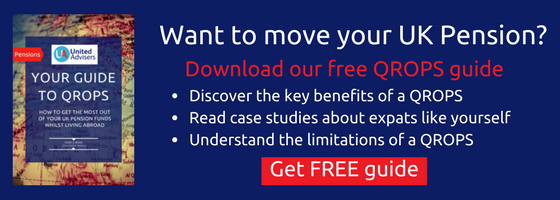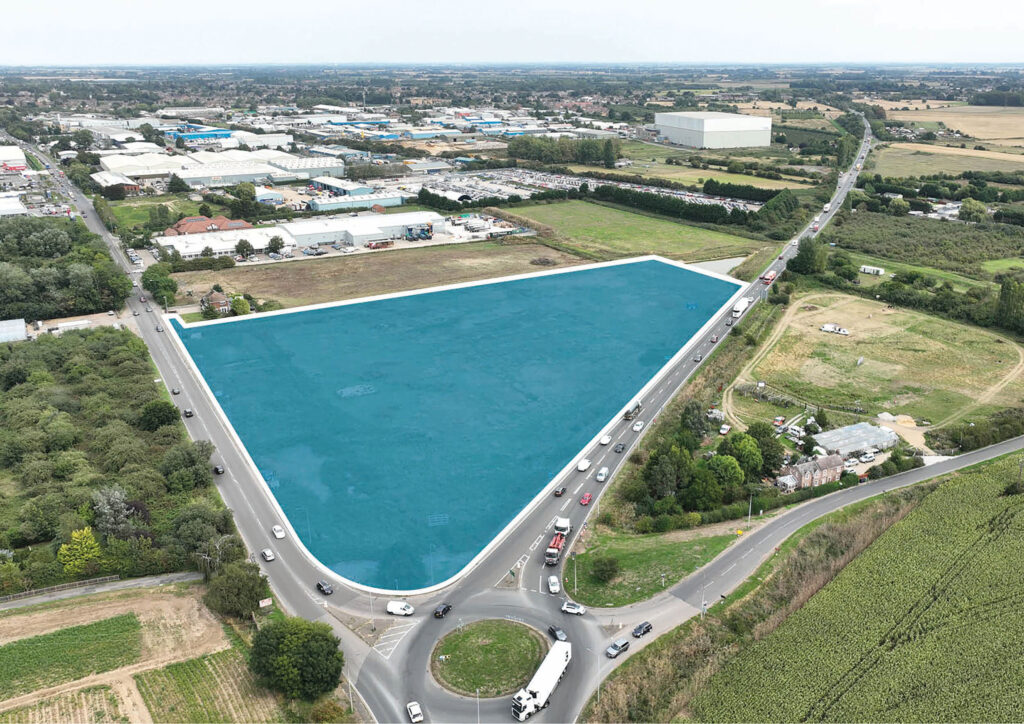Expats often ask whether they should transfer their pensions from their current UK schemes to an international scheme with a potentially more advantageous structure, such as a Qualified Recognised Overseas Pension Scheme (QROPS).
But first, it’s essential to understand whether a pension transfer is in fact the best thing for you and to understand that not all pensions can be transferred.
Is a pension transfer the right thing for you?
Transferring a personal pension is not right for everyone nor for every pension scheme.
It depends on your individual circumstances, such as how long you intend to stay abroad and how important inheritance provision is to you. Additionally, there is the ever-changing legislative landscape and the impact of Brexit on pension transfers.
If there is no clear advantage to transferring your pension, it’s strongly advisable to leave it where it is. Ensuring the best outcome for you and your situation is a complex endeavour, which is why there is no ‘one size fits all’ solution.
What to ask your financial adviser
It’s vital to seek professional advice, so you are clear about everything involved in pension transfers. We recommend asking your financial adviser the following questions:
- What is my current pension valuation?
- What are my safeguard benefits? Do I lose them if I transfer my pension?
- What is the likelihood that HM Revenue and Customs (HMRC) will delist your recommended scheme?
- Are you independent or linked to specific financial product providers?
- Can I benefit from a double taxation agreement (DTA)?
- How much will my pension transfer cost me?
- Will my current provider charge me for transferring my pension?
- Will the value of my contributions decrease after the transfer?
- How much do I need as a monthly drawdown?
- Do I have enough saved in my pension to pay for the lifestyle I want in retirement?
- Are you regulated and, if so, by whom?
A pensions analysis is a vital part of understanding which pension transfer options are best for you. As part of that analysis, it’s essential to understand that not every type of pension can be transferred.
Pensions you cannot transfer
Pensions that cannot be transferred from the UK to an international scheme include:
- State Pensions
- certain former employer schemes already in drawdown
- Civil Service and Armed Forces pensions (e.g. NHS, Police, Teachers, Fire Services)
- Council schemes
- an employer scheme you still pay into
- any annuities already purchased
- any pension held within the Pension Protection Fund.
Note: it is not advisable to transfer schemes that offer high Guaranteed Annuity Rates.
What international pension schemes are available to UK expats?
One of the most popular international pension schemes is a Qualified Recognised Overseas Pension Scheme (QROPS) because it can receive authorised transfers from UK pension arrangements.
Subject to meeting certain criteria, transfers can offer a number of tax efficient benefits, but QROPS legislation and associated tax implications have been subject to regular and extensive change over the past few years. It’s always best to seek advice from a qualified financial adviser if you are considering transferring your pension.
If I don’t transfer my pension to an international scheme, what are my other options?
This will depend on you tax residency. However, several options exist.
Self-Invested Personal Pension (SIPP)
A SIPP is a type of personal pension scheme and, for years, UK residents have recognised the many advantages of consolidating pensions into SIPP arrangements.
The SIPP is a do-it-yourself ‘pension wrapper’ that remains under UK legislation and holds all your investments until retirement when you start to draw income from your pension.
Most SIPPs are ideal for people who want to manage their own pension fund because it offers a great deal of freedom of choice when it comes to deciding which underlying investments you want to hold within your ‘wrapper’. It allows you to invest in and switch between a range of assets including shares and commercial property.
Regular savings
The biggest advantage of saving or investing outside of a pension is that you will be able to access your money earlier than retirement age if needed.
International banking and offshore bank accounts boast legitimate financial advantages for expats over domestic banking arrangements, one of which is access to investment opportunities to help boost your pension savings.
This is just one of a number of international investment opportunities for expats. You will want to take advantage of any local or national pension schemes available to you and then use international investments as a way of topping up your retirement income.
What are the differences between a QROPS and a SIPP?
Among the many benefits of both a QROPS and SIPP is mitigation against currency fluctuations that can negatively affect your retirement income.
With both schemes, you can invest in assets denominated in most currencies and receive benefit payments in the currency appropriate to your current situation.
A QROPS, however, provides additional benefits like the ability to fully pass on funds to named beneficiaries after death (after five full years of non-UK residence) and the possibility to minimise applicable UK taxes. This means there is greater flexibility and freedom.
For more information about QROPS, download our free guide.
Would a QNUPS be a better solution?
While a SIPP is popular with UK residents, the QROPS and Qualifying Non-UK Pension Scheme (QNUPS) have become attractive alternatives with expats because, depending on personal circumstances, QROPS and QNUPS can offer substantial advantages to people living overseas (i.e. not in the United Kingdom).
HMRC defines QNUPS as:
A form of Overseas Trust that qualifies as a pension for UK Tax purposes and is afforded special IHT treatments.
A QNUPS is an HMRC devised and designed pension trust structure that is more technically robust than individual discretionary trusts or double trust schemes. Although structured as a pension, access to the funds is not tied to retirement, and a QNUPS can be advantageous in creating estate protection, wealth creation and succession planning.
A QNUPS is an advanced product and, in some circumstances, can make an excellent supplementary pension. A QNUPS is tailored to every individual and, as such, requires comprehensive advice to find the right solution for you.
Can HMRC provide me with pension advice?
No. However, it is always best to seek advice from a qualified financial adviser. In fact, in some cases and depending on the type of pension you hold, it is mandatory to use a qualified adviser.
However, HMRC can help you verify your National Insurance contributions and provide an overview of your current state pension.
The UK Government has outlined everything you need to know about your National Insurance record and your State Pension.
How has Brexit changed pensions for UK residents living abroad?
It’s difficult to predict how the international pension landscape will look post-Brexit, so we asked our pensions expert Gary Quaggan of Azure Pensions for his thoughts. This is what he shared:
With the increasing number of British expats retiring to ‘hotspots’ such as Spain, Portugal and France, there could actually be a greater demand for QROPS in the future. That said, QROPS have always benefited from the EU freedom of movement of capital rules, which the UK government has had to abide by. If they’d wanted to put any restrictive hurdles in place, they simply couldn’t.
This, however, may change post-Brexit. If the UK government deems it is no longer party to these EU rules, it could apply whatever restrictions it likes to QROPS thus affecting their portability and effectiveness as a pan-EU retirement planning solution. Such new-found autonomy could also see the UK government seek to reduce or remove the effectiveness of a QROPS as a Lifetime Allowance (LTA) mitigation solution for UK residents.
Post-Brexit, there could also be a potential issue for current UK residents regarding the application, or not, of the Overseas Transfer Charge (OTC). The OTC is a tax of 25% for individuals transferring into a QROPS who are resident outside of the European Economic Area (EEA). So, upon leaving the EU, should the UK also leave the EEA, UK residents entering a QROPS could be deemed to reside outside the EEA and therefore liable to pay the OTC.
Overall, the international pensions landscape post-Brexit is difficult to predict, and given the unprecedented challenges and setbacks resulting from COVID-19, the future benefits and restrictions, and indeed treatment of international pensions like QROPS, may be unclear for a number of years to come. That said, however, it is likely the migration of UK residents retiring overseas will not slow down, and the need to have suitable pensions will continue to be of paramount importance.
How can I find out what fees are involved with a pension transfer?
As with any financial decision, there are risks and costs associated with pension transfers.
A key consideration when considering transferring your pension offshore is where you plan to retire. This choice can impact your choice of pension scheme and affect things like tax and choice of currency.
While there are potential tax benefits to transferring your pension overseas, there are also tax and financial risks. Depending on the amount you have in your UK pension scheme, it may not make good financial sense to transfer it given the fees involved.
It is always best to seek professional advice from a financial adviser before making a decision.
I can’t remember the details of my UK pensions; how can I find them?
It’s easy to lose track of your pensions if you move regularly for work. You can use the UK Government’s online Pension Tracing Service; however, this service will not tell you the value of your pensions.
The best way to find your UK pensions is to ask your financial adviser to run a search on your behalf. With your consent, your financial adviser can submit a pension information request to your current pension fund provider(s) who will inform you and your adviser of your total fund value.
With that information, your financial adviser can perform an analysis and send you a detailed report of your circumstances. Their report should include their recommendations for whether or not transferring your pension(s) is the right solution for you.
Seek professional advice before making a decision
As we said at the start of this post, transferring a personal pension is not right for everyone. And sometimes it’s not even possible depending on the actual pension scheme.
As with any decision revolving around finances and retirement planning, seek the advice of a professional financial adviser. In particular, look for an adviser who is experienced and licensed in transferring pensions.
You should also be mindful of possible changes to your retirement plans. For example, if you transfer your UK pensions to an international scheme but then decide to return to the UK to retire, your pension may be affected. Contact the UK’s International Pension Centre for more detailed information.
Would you like to know more?
If you have any questions about transferring your UK pension(s) to an international scheme, please contact us.





